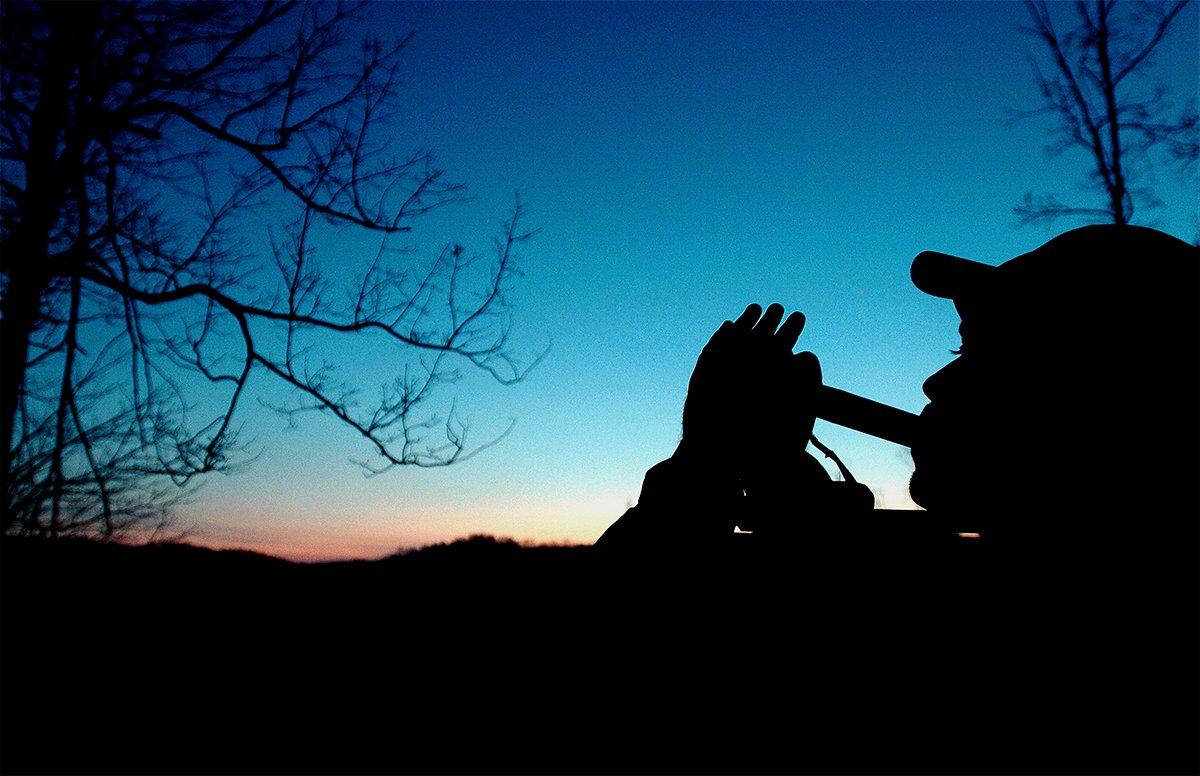Owl hooting is a great locator call when used right.
Spring gobblers, fired up about the prospect of breeding – and contesting pecking order – will gobble. When silent, you can make them “shock gobble” to various sounds, including owl hooting. After this, once the gobbler is located this way, you can hatch a plan to hunt this bird.
Some do’s and don’ts for owl hooting follow.
Owl-Hooting Ninja
You’ve heard him. This turkey hunter may be your buddy, and in love with his owl hooter. He’s like a little kid who has been given a birthday kazoo. He loves running this thing. This crazed owl-hooting ninja might be on the nearby ridge, doing everything to inadvertently annoy you.
Truth is, that’s not this person’s intent, it just does. What they want to do is get a gobbler to sound off.
Problem: Owl hooting, like turkey yelping, has a time and place. Owl hooting every 45 seconds defeats the purpose, and may even silence (emphasis on possible, but disputable) the gobbler even more. Worse yet, it may clue competitive hunters on public land to move on the vocal turkey as well.
Solution: Owl hoot, and listen. Some barred owls may answer; some might even fly in. Also, as some of you know, some might fire up, and join in with you. Once a gobbler sounds off, shut up. Make your move to get closer and set up. Yes, you can also hoot one or two more times to get a fix on the turkey’s position as you ease in.
Timing
It’s funny. Many would say the half-hour before and right after turkeys fly down from the roost is best for owl hooting. And that’s often true. Owls and gobblers are often most vocal then. I can think of a few occasions though when I was fooled. Here’s one.
I hit the spot late, a New Hampshire river bottom. After a mile walk, I heard an owl start hooting like the crazed ninja described in the previous section. I was sure it was a guy in love with his owl hooter. I eased closer, got a read on the height of the caller: about 20 feet off the ground. Either this dude was in a treestand (highly unlikely), or an owl was clearly excited about spring and sounding off.
It was the latter. Then, amazingly, a gobbler sounded off, maybe a quarter-mile in front of me. Another answered this bird, behind me. I yelped. Both ripped back.
I set up in the swamp bottom, called, heard gobblers on both sides coming hard from a distance, and waited.
One gobbler was right on top of me, running in. The turkey came, it stopped in stride, it looked my way at maybe five steps max. And I missed.
Well at least you can’t blame the owl.
Problem: The situation was unexpected, outside the time-frame my mind would accept. I failed to drill down and focus, and well, whiffed.
Solution: Be ready at all times to hear a real owl fire up spring gobblers, then make your move.
How to Owl Hoot for Turkeys
Stop. Look. Listen. Take a deep breath. Release it.
Take another. Make a short run of owl hoots to avoid drowning out any response from a gobbler. If a buddy is with you, have them listen a few steps away.
Mark the gobbler’s location if you can. Hatch a plan for hunting it.
Typically, barred owl hooting goes “who-cooks-for-you, who-cooks-for-you-all” when translated into English.
Just vocalizing the first part can work. You can also just go with the “you-all” squall at the end. Variations are as different as turkey hunters.
Experiment. Refine your owl hooting. You can even just wait to listen for gobbles without it.
Go here for the 10 Best Locator Calls for Turkeys, with audio files for listening.
More Realtree turkey hunting can be found here. Follow us on Facebook.








